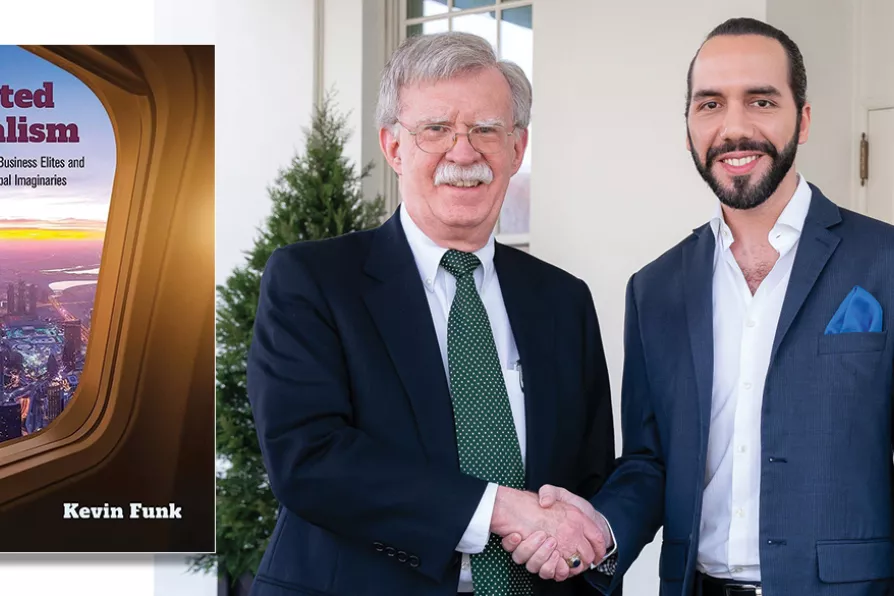JOHN GREEN, MARIA DUARTE and ANGUS REID review Fukushima: A Nuclear Nightmare, Man on the Run, If I Had Legs I’d Kick You, and Cold Storage

 PEAS IN A POD: El Salvador president Nayib Bukele, of Palestinian extraction, with, at the time, US national security advisor John Bolton ‘eager to identify new opportunities for foreign investment, improve security, counter Chinese predatory practices and increase support for Interim Venezuelan president Guaido,’ March 2019
[Office of US National Security Advisor/CC]
PEAS IN A POD: El Salvador president Nayib Bukele, of Palestinian extraction, with, at the time, US national security advisor John Bolton ‘eager to identify new opportunities for foreign investment, improve security, counter Chinese predatory practices and increase support for Interim Venezuelan president Guaido,’ March 2019
[Office of US National Security Advisor/CC]
Rooted Globalism: Arab-Latin American Business Elites and the Politics of Global Imaginaries
Kevin Funk, Indiana University Press, £27
WHY do we care so much about the poor? Why do we obsess about inequality from our privileged, superior positions of scholarship and journalism by wallowing in their misery?
It is of course a form of absolution, penance if you will, from within a liberal caste that has clearly lost its grip on the bedrock of sociology, namely: an analysis based on class struggle.
As author Kevin Funk notes, postmodern and postcolonial approaches with their focus on subaltern agency have largely displaced Marxist-inspired analysis as the standard-bearer for “radical” critique in the social sciences.

ISAAC SANEY points to the global stakes involved in defending the Cuban revolution against imperialism and calls for resistance

GAVIN O’TOOLE welcomes, and recommends a a candid, evidence-based record of Britain’s role in the slaughter visited by Israel upon the Palestinians











